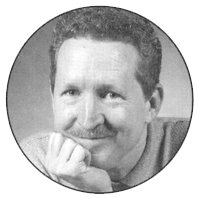 Donald Lopez is Carl W. Belser Professor of Buddhist and Tibetan Studies at the University of Michigan. Author or editor of some twenty books, including Curators of the Buddha: The Study of Buddhism Under Colonialism and Prisoners of Shangri-La: Tibetan Buddhism and the West, he was elected to the American Academy of Arts and Sciences in 2000. His essay in this issue of Tricycle (“Modern Buddhism: So New, So Familiar,”) is adapted from the introduction to his latest book, A Modern Buddhist Bible: Essential Readings from East and West, a project he undertook “in an effort to understand why contemporary Buddhism is so different from traditional Buddhist practice.”
Donald Lopez is Carl W. Belser Professor of Buddhist and Tibetan Studies at the University of Michigan. Author or editor of some twenty books, including Curators of the Buddha: The Study of Buddhism Under Colonialism and Prisoners of Shangri-La: Tibetan Buddhism and the West, he was elected to the American Academy of Arts and Sciences in 2000. His essay in this issue of Tricycle (“Modern Buddhism: So New, So Familiar,”) is adapted from the introduction to his latest book, A Modern Buddhist Bible: Essential Readings from East and West, a project he undertook “in an effort to understand why contemporary Buddhism is so different from traditional Buddhist practice.”
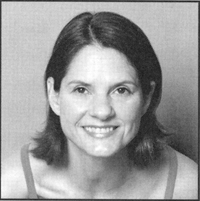 Cyndi Lee, director of OM Yoga Center, is a practitioner of both hatha yoga and Tibetan Buddhism and has been teaching yoga for over twenty years. She tells us, “The juiciness of yoga always satisfied my movement jones, but after I met Gehlek Rinpoche in 1990, the Buddhist techniques of mindfulness, compassion, and cutting through deepened my asana [yogic posture] experience. I began to see how our relationships with our bodies are a mirror of how we live our lives. It’s great to be able to cultivate a strong body, an open heart, and a spacious mind through an integrative practice.” Her program of yoga for meditators appears here.
Cyndi Lee, director of OM Yoga Center, is a practitioner of both hatha yoga and Tibetan Buddhism and has been teaching yoga for over twenty years. She tells us, “The juiciness of yoga always satisfied my movement jones, but after I met Gehlek Rinpoche in 1990, the Buddhist techniques of mindfulness, compassion, and cutting through deepened my asana [yogic posture] experience. I began to see how our relationships with our bodies are a mirror of how we live our lives. It’s great to be able to cultivate a strong body, an open heart, and a spacious mind through an integrative practice.” Her program of yoga for meditators appears here.
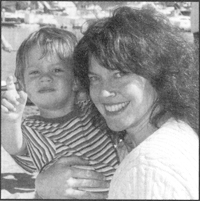 Anne Cushman writes on discovering the convergence of yoga and meditation practice in her life in “Living from the Inside Out.” “I’m interested in the intersection of contemplative practice with ordinary life – the way the lofty philosophies actually play out in the quirky, gritty chaos of our daily existence,” she says. “Stories intrigue me more than theories. For me, yoga is one way of exploring the dance between spirit and flesh. Writing is another.”
Anne Cushman writes on discovering the convergence of yoga and meditation practice in her life in “Living from the Inside Out.” “I’m interested in the intersection of contemplative practice with ordinary life – the way the lofty philosophies actually play out in the quirky, gritty chaos of our daily existence,” she says. “Stories intrigue me more than theories. For me, yoga is one way of exploring the dance between spirit and flesh. Writing is another.”
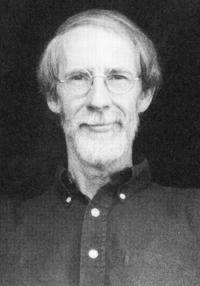 Of his essay on housekeeping and practice (“The Dust Beyond the Cushion,”), Gary Thorp writes, “Writing and housework have a great deal in common. We try to tidy up all the loose ends and make things neat, but our creativity is sometimes at odds with what’s practical and utilitarian. My Zen housecleaning instincts come into play whenever I encounter a particularly unruly section of writing. That’s when I stop mid-sentence, wash a load of dishes, and let things quiet down. There’s no greater friend to dishwashing than a wild and writhing sentence that’s headed out of control.”
Of his essay on housekeeping and practice (“The Dust Beyond the Cushion,”), Gary Thorp writes, “Writing and housework have a great deal in common. We try to tidy up all the loose ends and make things neat, but our creativity is sometimes at odds with what’s practical and utilitarian. My Zen housecleaning instincts come into play whenever I encounter a particularly unruly section of writing. That’s when I stop mid-sentence, wash a load of dishes, and let things quiet down. There’s no greater friend to dishwashing than a wild and writhing sentence that’s headed out of control.”
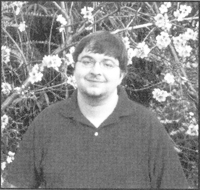 Jeff Wilson, whose ancestors wore gray in the War Between the States, is a contributing editor to Tricycle. A chief researcher for the Buddhism in North Carolina Project, he received a grant from Harvard’s Pluralism Project this summer to study emerging Buddhist communities in the Appalachian Mountains. His experiences with Buddhism in the South led him to write “Down Home Dharma.” Jeff is the author of The Buddhist Guide to New York.
Jeff Wilson, whose ancestors wore gray in the War Between the States, is a contributing editor to Tricycle. A chief researcher for the Buddhism in North Carolina Project, he received a grant from Harvard’s Pluralism Project this summer to study emerging Buddhist communities in the Appalachian Mountains. His experiences with Buddhism in the South led him to write “Down Home Dharma.” Jeff is the author of The Buddhist Guide to New York.
 Stuart Smithers (“Losing Our Bodies, Losing Our Minds,”) writes, “We’re pretty obviously a culture obsessed with the body. I’m really amazed and dazzled by pop culture’s manipulation of the body, especially its surface: face-lifts, tattoos, piercings, that kind of thing, and wonder just what it all means. Maybe there is something tribal in it. I’m lucky to be teaching in a university where I can approach, with my students, both the profound and the superficial dimensions of our body-culture through philosophy and religion.” Smithers is the director of the Asian Studies Program at the University of Puget Sound and a professor of South Asian religions. He is also working to start an experimental school for high-school-age students in the foothills of the North Cascades. ▼
Stuart Smithers (“Losing Our Bodies, Losing Our Minds,”) writes, “We’re pretty obviously a culture obsessed with the body. I’m really amazed and dazzled by pop culture’s manipulation of the body, especially its surface: face-lifts, tattoos, piercings, that kind of thing, and wonder just what it all means. Maybe there is something tribal in it. I’m lucky to be teaching in a university where I can approach, with my students, both the profound and the superficial dimensions of our body-culture through philosophy and religion.” Smithers is the director of the Asian Studies Program at the University of Puget Sound and a professor of South Asian religions. He is also working to start an experimental school for high-school-age students in the foothills of the North Cascades. ▼
Thank you for subscribing to Tricycle! As a nonprofit, we depend on readers like you to keep Buddhist teachings and practices widely available.